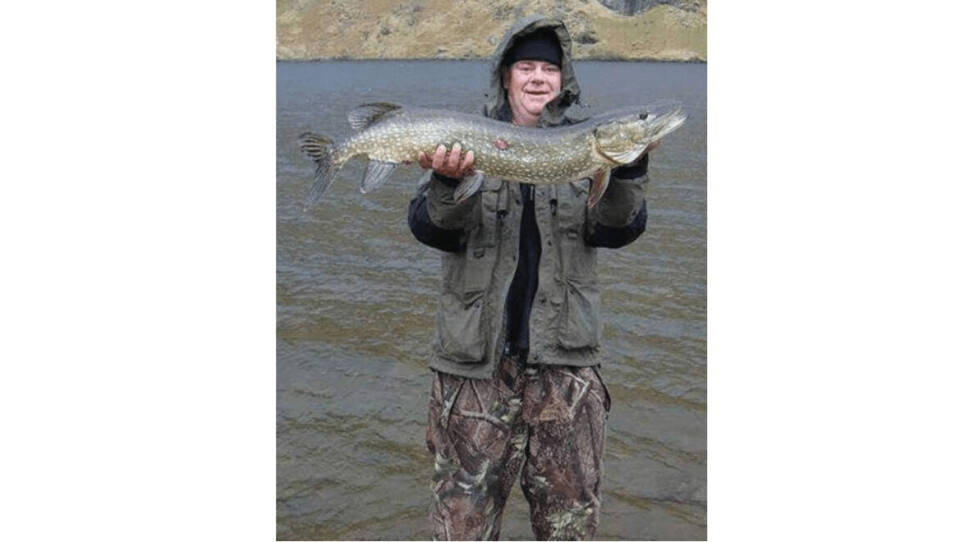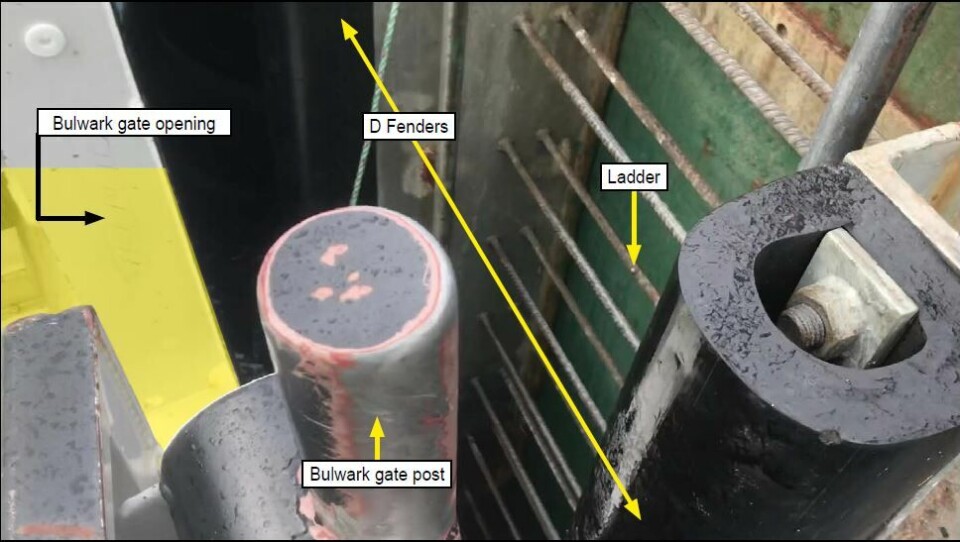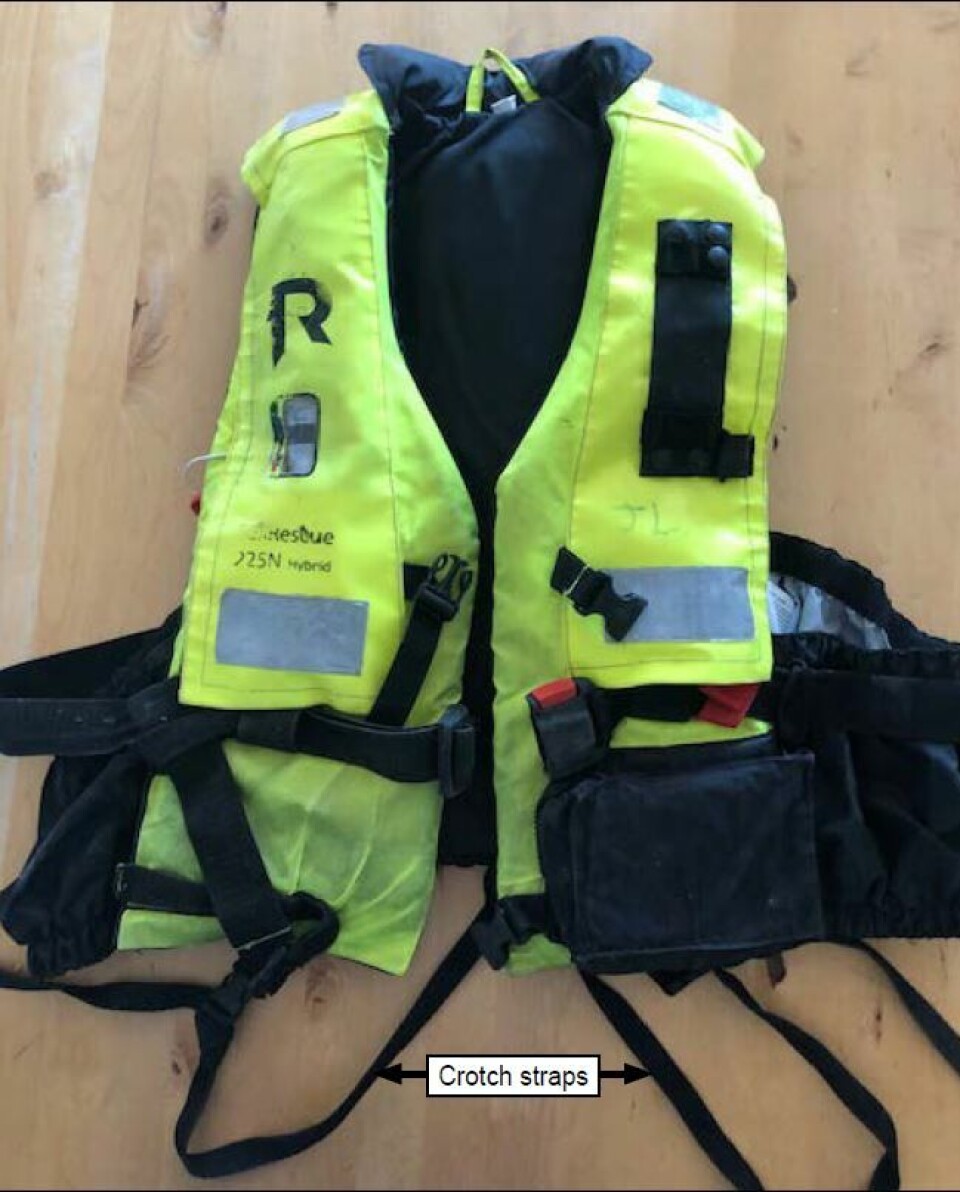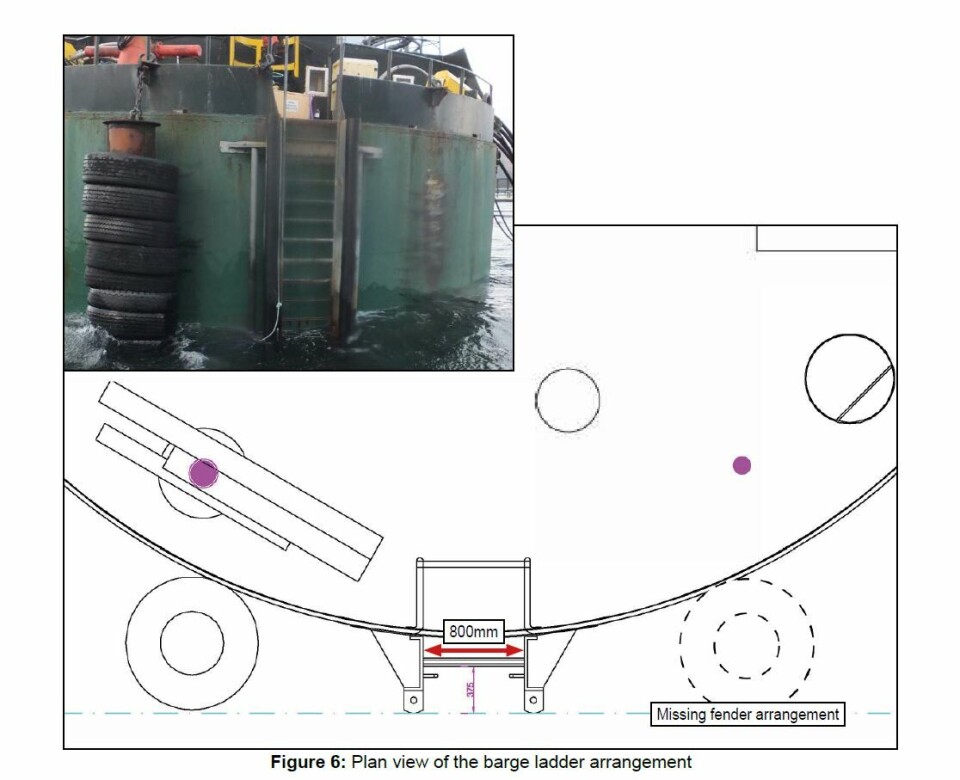
Mowi given safety recommendations after barge transfer tragedy
Salmon farmer Mowi Scotland has been issued with safety recommendations following the death of a fish farm worker in an accident at the company’s Ardintoul site, Loch Alsh on February 18 last year.
Assistant site manager Clive Hendry, 58, drowned after falling into the water from a feed barge access ladder during a transfer from the 21-metre workboat Beinn Na Caillich.
A report by the Marine Accident Investigation Branch (MAIB) said that the vessel’s skipper was intending to align the forward bulwark gate with the barge access ladder and ensure that the vessel was stationary before instructing the assistant manager to step across to the SeaCap barge ladder.

Vessel still moving
However, Mr Hendry stepped on to the barge ladder while the Beinn Na Caillich was still moving forward and was crushed between the boat’s bulwark gate post and the barge’s rubber D-fender.
A fish farm technician on board the barge attempted to stop Mr Hendry from falling into the water by holding on to the back of his personal flotation device and oilskin jacket, but Mr Hendry, who was severely injured, slipped out of them.
Despite the assistant manager being recovered from the water and the determined efforts of the fish farm workers, emergency services, and medical staff, he could not be resuscitated.

Crotch strap
As permitted by company policy, Mr Hendry had not fastened the crotch strap of the personal flotation device. “Crotch straps are designed to stop lifejackets riding up on entry to and while in the water; they are not designed to support the weight of the person wearing it,” stated the MAIB report. “However, had the assistant manager’s crotch straps been fastened, it is possible that he would not have slipped out of his lifejacket.
“Mowi’s policy of allowing the wearer to decide whether or not to attach the crotch strap was contrary to best practice and published guidance from both the MCA (Maritime and Coastguard Agency) and the International Maritime Organization. Properly fitted lifejackets with fastened crotch straps will help keep an unconscious or incapacitated casualty’s airways clear of the water and therefore significantly increase their chances of survival.”

Missing fender
The report also pointed out that there should have been a vertical rubber tyre fender arrangement designed to provide protection when larger vessels were mooring alongside. However, the vertical fender on the right-hand side of the ladder was missing after becoming detached following a heavy contact during a feed delivery on 8 February 2020, 10 days before the accident.
The investigation concluded that the conduct of the boat transfer had not been properly planned or briefed and was not adequately supervised or controlled.
The MAIB report found that:
• The transfer of workers by boat had not been properly risk assessed, and safe systems of work had not been put in place.
• Crews of Mowi vessels had not conducted regular “man overboard” recovery drills and were not familiar with the vessel's recovery equipment.
• Mowi Scotland Ltd did not have an effective marine safety management system and lacked staff with the experience to oversee its marine operations.
‘Didn’t appreciate the risk’
“The assistant manager’s decision to step on to the barge access ladder while Beinn Na Caillich was still moving ahead might have been influenced by his experience of touch and go transfers using the RBBs (rigid buoyancy boats),” the MAIB stated. “He might also have been keen to save time. Regardless of his motivations, the assistant manager clearly did not appreciate the risk he was taking.
“Being crushed against a fixed object such as a quayside, pontoon or, as in this case a barge, while attempting to step on or off a moving boat is entirely foreseeable. For that reason, all personnel transfers need to be properly supervised by the boat’s crew. In this case, the assistant manager was allowed to make his own way to the disembarkation point and there were no crew on hand to control and supervise him. The bulwark gate being routinely left in the open position made it much easier for the assistant manager to act on his own initiative and more difficult for the master to intervene.”
No presumption of blame
The report noted that safety recommendations do not create a presumption of blame or liability.
It added that Mowi has reviewed, revised, and developed policies and risk assessment method statements for embarking and disembarking vessels, wearing of lifejackets, and manoverboard emergency procedures.
It has also introduced new equipment and training for recovery of a man overboard, incorporated the lessons learned from this accident into its E-Learning package for employees during induction, and engaged external auditors to undertake an audit of its current health and safety management systems.
Workboat Code 2
The MAIB has recommended that Mowi applies the standards set out in the Workboat Code Edition 2 to all its existing workboats and, specifically, to fully implement a safety management system across its fleet that complies with the principles of the International Safety Management Code.
It has also recommended that Mowi ensures that appropriate marine expertise is present or provided to its senior management team to oversee the safety of its vessels and marine operations.
A Mowi spokesperson said: “Clive had been a truly valued member of our team for 12 years and we all continue to be deeply affected by his death. Our sympathies go to Clive’s family, friends and colleagues. As detailed in the MAIB accident report, preventative actions were immediately implemented and we are now reviewing the learnings from this report that include two recommendations made by the MAIB.”























































